|
Books Should Be Free Loyal Books Free Public Domain Audiobooks & eBook Downloads |
|
|
Books Should Be Free Loyal Books Free Public Domain Audiobooks & eBook Downloads |
|
Top Authors |
|---|
|
Book type:
Sort by:
|
By: Edwin Abbott Abbott (1838-1926) | |
|---|---|
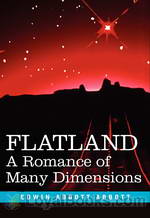 Flatland: A Romance of Many Dimensions
Flatland: A Romance of Many Dimensions
If you've never heard the term “Mathematical Fiction” before, Edwin Abbott Abbott's 1884 novella, Flatland can certainly enlighten you! Flatland: A Romance of Many Dimensions was published in 1884 and since then, it has been discovered and re-discovered by succeeding generations who have been delighted by its unique view of society and people. The plot opens with a description of the fictional Flatland. The narrator calls himself “Square” and asks readers to “Imagine a vast sheet of paper on which straight Lines, Squares, Triangles, Pentagons, Hexagons and other figures, instead of remaining fixed in their places, move freely about... | |
 Flatland: a romance of many dimensions (Illustrated)
Flatland: a romance of many dimensions (Illustrated)
| |
 How to Write Clearly Rules and Exercises on English Composition
How to Write Clearly Rules and Exercises on English Composition
| |
By: P. G. Wodehouse (1881-1975) | |
|---|---|
 The Clicking of Cuthbert
The Clicking of Cuthbert
The first of two books that he wrote on golfing themes, The Clicking of Cuthbert by PG Wodehouse sparkles with typical Wodehousian wit, humor and general goofiness! An avid golfer himself, Wodehouse published the ten stories in this volume in 1922. In 1924, an American edition titled Golf Without Tears was published. Since then it has enjoyed undimmed popularity among both Wodehouse fans and golfing enthusiasts. Nine of the stories contained in this book are narrated by the Oldest Member, a character who has become a cult figure among Wodehouse fans... | |
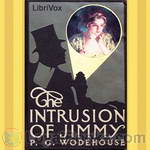 The Intrusion of Jimmy
The Intrusion of Jimmy
The action begins with playboy bachelor Jimmy Pitt in New York; having fallen in love on a transatlantic liner, he befriends a small-time burglar and breaks into a police captain's house as a result of a bet. The cast of characters head to England, and from there on it is a typically Wodehousian romantic farce, set at the stately Dreever Castle, overflowing with imposters, detectives, crooks, scheming lovers and conniving aunts. | |
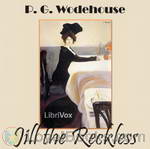 Jill the Reckless
Jill the Reckless
Jill had money, Jill was engaged to be married to Sir Derek Underhill. Suddenly Jill becomes penniless, and she is no longer engaged. With a smile, in which there is just a tinge of recklessness, she refuses to be beaten and turns to face the world. Instead she goes to New York and becomes a member of the chorus of "The Rose of America," and Mr. Wodehouse is enabled to lift the curtain of the musical comedy world. There is laughter and drama in _Jill the Reckless_, and the action never flags from the moment that Freddie Rooke confesses that he has had a hectic night, down to the point where Wally says briefly "Let 'em," which is page 313... | |
 The Coming of Bill
The Coming of Bill
The Coming of Bill tells the story of Kirk Winfield, his marriage to Ruth, and their child called Bill. Bill's upbringing is threatened by the interference of Ruth's busybody writer aunt, Mrs Lora Delane Porter. | |
By: Eugene Field (1850-1895) | |
|---|---|
 Love-Songs of Childhood
Love-Songs of Childhood
If you've heard and loved that delightful nursery rhyme/lullaby, Wynken Blynken and Nod you'd certainly enjoy browsing through its creator Eugene Field's Love Songs of Childhood. The volume contains some forty or more poems for children, which are ideal for read aloud sessions with young folks. Parents will certainly enjoy reading them too. Most of these poems have been set to music and are ideal for family sing-alongs too. Eugene Field was a gifted humorist as well as being a talented children's writer... | |
 Selected Lullabies
Selected Lullabies
The sweetest songs the world has ever heard are the lullabies that have been crooned above its cradles. The music of Beethoven and Mozart, of Mendelssohn and Schumann may perish, but so long as mothers sing their babies to sleep the melody of cradle lullabies will remain. Of all English and American writers the one who sang most often and most exquisitely these cradle songs was Eugene Field, the children’s poet. His verses not only have charm as poetry, but a distinct song quality and a naive fancy that is both childlike and appealing... | |
 The Love Affairs of a Bibliomaniac
The Love Affairs of a Bibliomaniac
Do you love books? No, I mean REALLY love books? These series of sketches on the delights, adventures, and misadventures connected with bibliomania (bibliomania is characterized by the collecting of books which have no use to the collector nor any great intrinsic value to a genuine book collector. The purchase of multiple copies of the same book and edition and the accumulation of books beyond possible capacity of use or enjoyment are frequent symptoms of bibliomania.). The author wholeheartedly enjoyed this pursuit all his life and his descriptions are delightful to read... | |
 Second Book of Tales
Second Book of Tales
| |
 The Mouse and The Moonbeam
The Mouse and The Moonbeam
| |
 Contentment
Contentment
Eugene Field, Sr. was an American writer, best known for his children's poetry and humorous essays. | |
 The Holy Cross and Other Tales
The Holy Cross and Other Tales
| |
 Second Book of Verse
Second Book of Verse
| |
 The House An Episode in the Lives of Reuben Baker, Astronomer, and of His Wife, Alice
The House An Episode in the Lives of Reuben Baker, Astronomer, and of His Wife, Alice
| |
 A Little Book of Profitable Tales
A Little Book of Profitable Tales
| |
 Hoosier Lyrics
Hoosier Lyrics
| |
By: Bernard of Clairvaux (1090-1153) | |
|---|---|
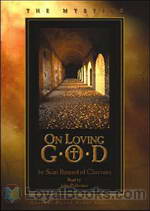 On Loving God
On Loving God
On Loving God is one of the best-known and most influential works of Medieval Christian mysticism. Written at the request of one of the cardinals of Rome, it describes the four “levels” of love for God, and puts Christian devotion in the context of God’s love for mankind. | |
By: Ernest Shackleton | |
|---|---|
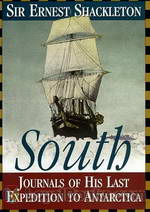 South! The Story of Shackleton's Last Expedition 1914-1917
South! The Story of Shackleton's Last Expedition 1914-1917
The expedition was given the grand title of The Imperial Trans-Antarctic Expedition. Due to be launched in 1914, two ships were to be employed. The first, the lead vessel, fittingly named the Endurance was to transport the team to the Weddell Sea from where the great explorer Ernest Shackleton and five others would cross the icy wastes of Antarctica on foot. The second ship, the Aurora was to approach the continent from the other side and put down supplies at various points to help the explorers... | |
By: Laozi | |
|---|---|
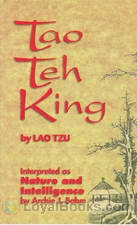 The Tao Teh King, or the Tao and its Characteristics
The Tao Teh King, or the Tao and its Characteristics
Written in classical Chinese some time during the sixth century BC, The Tao Teh King or The Tao and its Characteristics is a classical Chinese text that is one of the important keystones in understanding the thought systems of Asia. Though no clear records exist, it is traditionally thought to have been the work of the sage Lao Tzu, the founder of classical Taoism. He is reputed to have been a contemporary of Confucius, though this is also shrouded in mystery. However, many succeeding emperors and dynasties have claimed that he lived in their eras... | |
By: Brother Lawrence (1605-1691) | |
|---|---|
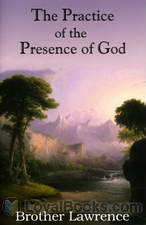 The Practice of the Presence of God
The Practice of the Presence of God
The Practice of the Presence of God is a collection of letters and transcriptions of conversations, compiled by a disciple of Brother Lawrence. Brother Lawrence was a Carmelite monk and head cook in his monastery’s kitchens. He quickly gained an international reputation as a mystic and spiritual counselor. The Practice of the Presence records his last words of advice to his friends and disciples, as he suffered from an unnamed illness which would eventually take his life. (Description written by Kirsten Ferreri). | |
By: Sir Walter Scott (1771-1832) | |
|---|---|
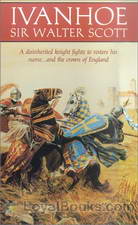 Ivanhoe
Ivanhoe
Medieval England in the 12th century. The evil Prince John rules England in place of his brother, the noble Richard the Lionheart, who is being held in an Austrian prison by Duke Leopold of Austria, while returning from one of his Crusades. Under the avaricious and Machiavellian John, the Norman aristocrats are in constant conflict with the native Saxon people. Ivanhoe by Sir Walter Scott is set in these turbulent times. The eponymous hero, Wilfred of Ivanhoe, the son of a Saxon nobleman has been disinherited by his father for following King Richard into war... | |
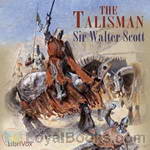 The Talisman
The Talisman
The Talisman is a gripping tale set near the end of the Third Crusade. King Richard the Lionheart is grievously ill, and all around him the leaders from allied countries plot and scheme to gain personal power, putting the future of the crusade in jeopardy. Sir Kenneth of Scotland finds himself caught up in events, and finds both his honour and his life are now on the line. Can a cure be found for the King? Can Kenneth redeem his honour? – Written by Rowen. | |
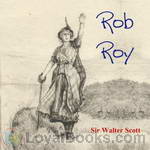 Rob Roy
Rob Roy
Rob Roy is a historical novel by Walter Scott. It is narrated by Frank Osbaldistone, the son of an English merchant who travels first to the North of England, and subsequently to the Scottish Highlands to collect a debt stolen from his father. On the way he encounters the larger-than-life title character of Rob Roy MacGregor. Though Rob Roy is not the lead character (in fact the narrative does not move to Scotland until half way through the book) his personality and actions are key to the development of the novel. | |
 Waverley
Waverley
Waverley is set during the Jacobite Rebellion of 1745, which sought to restore the Stuart dynasty in the person of Charles Edward Stuart (or 'Bonnie Prince Charlie'). It relates the story of a young dreamer and English soldier, Edward Waverley, who was sent to Scotland in 1745. He journeys North from his aristocratic family home, Waverley-Honour, in the south of England first to the Scottish Lowlands and the home of family friend Baron Bradwardine, then into the Highlands and the heart of the 1745 Jacobite uprising and aftermath. | |
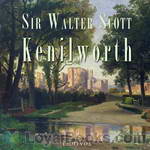 Kenilworth
Kenilworth
An Elizabethan era historical novel by Scotland’s master of fiction, Sir Walter Scott. With a cast of historical and created characters, including the Queen herself, Scott presents the sad history and tragic consequences of the secretive marriage of young Amy Robsart and the Earl of Leicester. (Summary by SK) | |
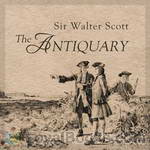 The Antiquary
The Antiquary
Illegitimacy, false identity, and bankruptcy are the major elements of Sir Walter Scott's 1816 novel, The Antiquary. Set in the period of the French Revolution, the novel's hero, Lovel, struggles to gain repute and the hand of his beloved despite his uncertain parentage. During these pursuits, he befriends the title's antiquary, Johnathan Oldbuck, who finds Lovel a captive audience to his scholarly studies and a tragic likeness to his own disappointments in love. Readers will discover whether Lovel's acts of bravery and courage ultimately earn him the birth and fortunes of a nobleman. | |
 The Lord of the Isles
The Lord of the Isles
In stunning narrative poetry, the story begins during the time when Robert Bruce, Earl of Carrick has been hunted out of Scotland into exile by the English and their allies. Bruce returns over sea from the Island of Rachrin: but is forced to land close to hostile forces at Artonish Castle on the seacoast of Argylshire. Seeking refuge from tempestuous seas, Bruce begs shelter from Ronald, Lord of the Isles: inadvertently on the day of his marriage feast to the beautiful Edith of Lorn.Bruce's very... | |
 Harold the Dauntless
Harold the Dauntless
Harold the Dauntless is a rhymed, romantic, narrative-poem by Sir Walter Scott. Written in 1817, it weaves together elements of popular English legends and folklore using dramatic themes.The poem recounts the exploits and the personal spiritual journey of a doubtful knight errant - Harold the son of Danish Count Witikind: who seeks to recover his lands and wed a suitable spouse.Fire-breathing Harold is as much a stranger to love as he is addicted to dangerous adventure: yet his own confrontations with the spirit-world shake his faith in supposed omnipotence of the traditional Norse pantheon... | |
 Translations & Imitations of German Ballads
Translations & Imitations of German Ballads
The narrative poems in this collection are written by Sir Walter Scott - the well-known English poet and novelist. Each of these five poems are based loosely upon German ballads: rewritten in flowing English meter.The Chase - a.k.a. The Wild Huntsman - A profligate, noble-born keeper of the royal forest - avidly addicted to the pleasures of the hunt - cruelly uses and mistreats his fellow-men. One day God's messengers come to test him: executing sentence immediately in just proportion to the huntsman's responses... | |
 The Bridal of Triermain
The Bridal of Triermain
Scott's The Bridal of Triermain is a rhymed, romantic, narrative poem which weaves together elements of popular English legend using dramatic themes. This beautiful poem celebrates the exploits of a knight errant - Sir Roland De Vaux - as he seeks to rescue (and hopefully espouse) a beautiful maiden, Gyneth. Gyneth is the illegitimate daughter of King Arthur: doomed by Merlin 500 years previously to an enchanted sleep inside a magic castle. The enchantment can only be broken by a rescuer both brave and noble enough to overcome the temptations used successively to distract and overcome him, namely: fear, wealth, pleasure and pride.(Introduction by Godsend) | |